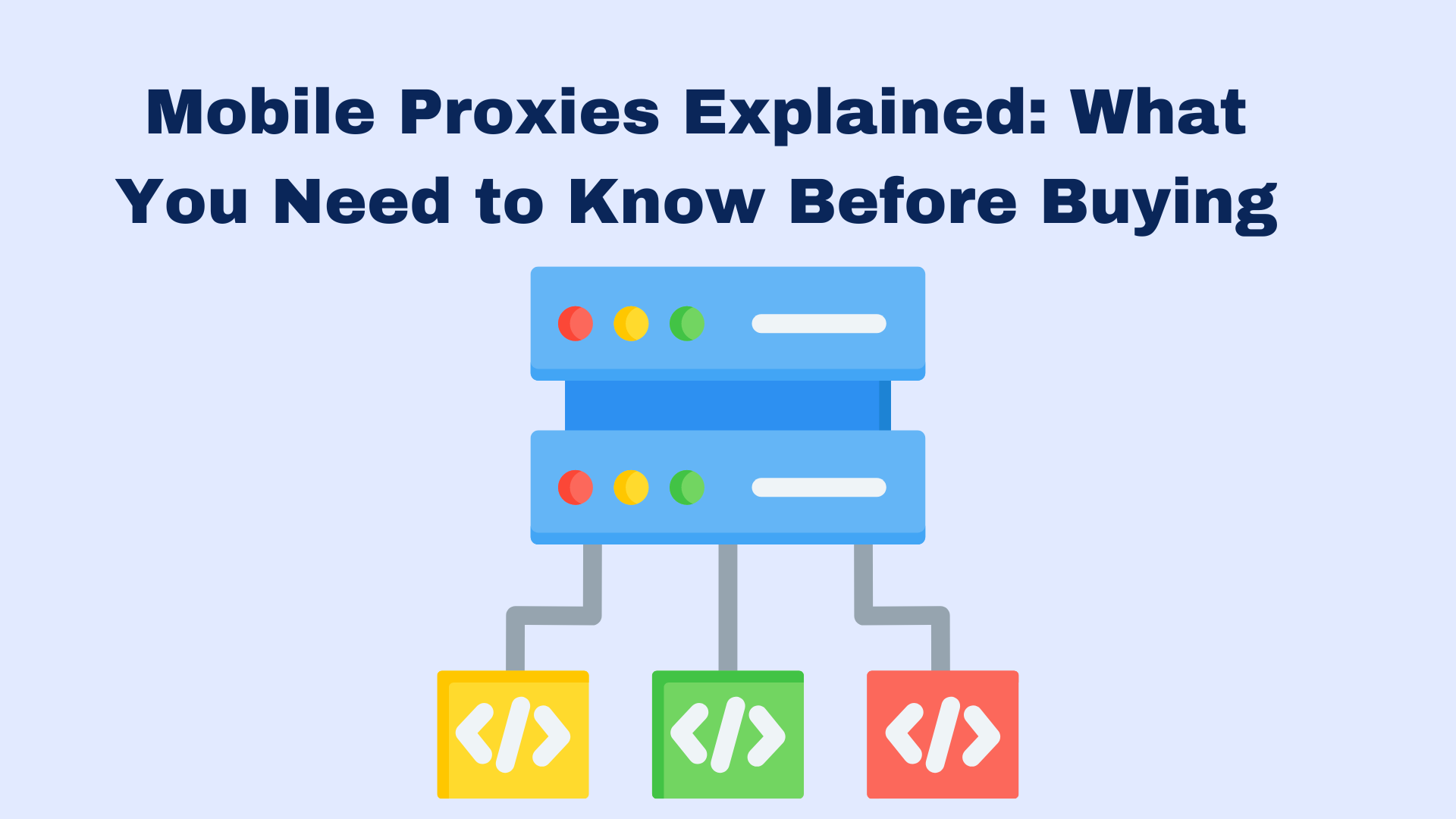In the ever-evolving world of e-commerce, businesses are continuously seeking ways to enhance their operations, improve customer experience, and stay competitive. Mobile proxies offer a range of benefits that can significantly impact various aspects of an e-commerce site. Here’s an in-depth look at how mobile proxies can be advantageous for e-commerce businesses.
1. Enhanced Privacy and Anonymity
Protect Customer Data: Mobile proxies mask IP addresses, providing an additional layer of privacy. This is crucial for protecting sensitive customer information from potential breaches and unauthorized access.
Reduce Tracking: Mobile proxies help mitigate the risk of third-party trackers collecting data on users. By obscuring IP addresses, e-commerce sites can reduce the likelihood of user profiling and data exploitation.
2. Bypass Geo-Restrictions
Access Global Markets: Mobile proxies enable e-commerce sites to access content, services, and pricing specific to different regions. This is especially useful for managing international storefronts and ensuring that content is appropriate for each market.
Price Comparison: Use mobile proxies to compare prices and offers from competitors in various regions. This helps in maintaining competitive pricing and offering the best deals to customers.
3. Improved Web Scraping and Data Collection
Competitor Analysis: Mobile proxies facilitate effective web scraping of competitor websites without facing blocks or restrictions. This allows e-commerce businesses to gather valuable insights on competitor pricing, product offerings, and market trends.
Product Research: Collect data on product availability, pricing, and customer reviews from various locations efficiently. This helps in optimizing inventory management and shaping product strategy based on regional preferences.
4. Reduced Risk of IP Bans
Avoid Rate Limiting: By rotating IP addresses frequently, mobile proxies minimize the risk of getting banned or blacklisted due to high traffic from a single IP. This ensures consistent access to online resources and services.
Prevent Detection: Mobile IPs make it more challenging for websites to detect and block automated activities. This is beneficial for e-commerce sites that engage in large-scale data collection or automated tasks.
5. Enhanced Ad Targeting and Testing
Geotargeted Ads: Mobile proxies allow e-commerce sites to test ad campaigns from different locations. This ensures that ads are targeted effectively and reach the intended audience, improving campaign performance.
Ad Verification: Verify how ads appear in various regions and on different devices. This helps in ensuring consistent ad presentation and effectiveness across all target markets.
6. Improved User Experience
Faster Load Times: Testing site performance from different mobile networks can help identify and address issues affecting load times. This optimization is particularly important for mobile users, enhancing their overall shopping experience.
Localized Content Testing: Ensure that localized content, such as language and currency, is correctly displayed for users in different regions. This improves user satisfaction and encourages higher engagement.
7. Increased Security Against Fraud
Bot Protection: Mobile proxies assist in distinguishing between genuine users and automated bots, protecting the e-commerce site from fraudulent activities and malicious attacks.
Transaction Security: By masking IP addresses, mobile proxies add an extra layer of security to online transactions, making it more difficult for fraudsters to exploit vulnerabilities.
8. Scalability and Flexibility
Handle High Traffic: Mobile proxies can manage large volumes of requests, making it easier for e-commerce sites to scale operations during peak times, such as sales or special promotions.
Flexible Access: Easily switch between different IP addresses and locations, allowing e-commerce sites to adapt to changing market conditions and operational needs.
9. Enhanced Market Research
Consumer Behavior Analysis: Simulate users from various regions to gain insights into regional consumer behavior, preferences, and buying patterns. This data is valuable for tailoring marketing strategies and product offerings.
A/B Testing: Conduct A/B tests of different web page versions or features from various locations to determine what performs best. This helps in optimizing site design and functionality based on user feedback and performance metrics.



